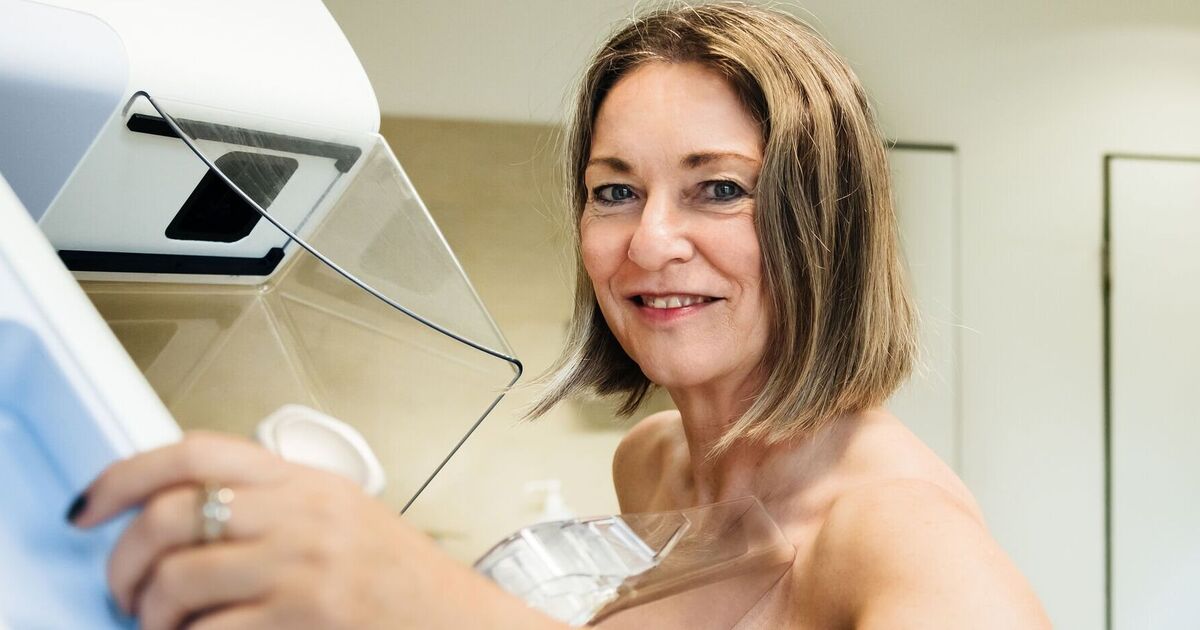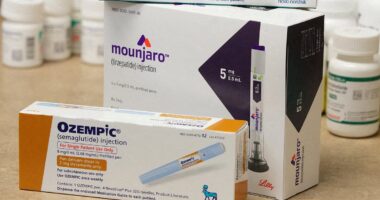A top radiologist has penned a New Year’s resolution ‘breast cancer checklist’ for Daily Express readers – warning 13 per cent of women will experience it in their lifetime.
Screening for breast, bowel and cervical cancer saves over 5,000 UK lives a year with breast cancer survival rates above 99 per cent if caught quick enough.
But it’s feared 40 per cent of women aged 40-plus have ‘dense breasts’ that increase the risk of developing cancer while also masking tumours during a mammograms.
Data from breast cancer detection firm Micrima reveals that 86 per cent of women in the UK do not know their breast density, despite it being a cancer risk factor.
Micrima has developed a device called Mi-Scan which it says can “analyse breast tissue quickly, painlessly, and without ionising radiation or the need for a hospital visit”.
Now for New Year, radiologist Dr Nisha Sharma – clinical lead of Leeds NHS Foundation Trust Breast Services and Micrima Clinical Advisory Board chair – has created five tips for women to take control of their breast health 2025.
Dr Sharma told us: “Dense breast tissue appears white on mammograms, which can mask potential tumours (also white), therefore reducing mammogram effectiveness.
“It’s important to note that dense breasts are only one factor that increases breast cancer risk, and having dense breasts doesn’t mean you’re guaranteed to get breast cancer.
“The NHS website does state that women may be told their breast density following a mammogram.
“However, In England, the NHS Breast Screening Programme (NHS BSP) does not currently include/mandate the assessment or recording of breast density on screening mammograms.”
Mammograms are currently the most reliable way of detecting the disease and save around 1,300 lives each year.
But for women with dense breasts – a higher amount of fibrous or glandular tissue compared to fat – the images are harder to analyse, meaning cancer can go undetected.
Other countries such as Austria, Croatia, France and Spain, offer ultrasound screening as an add-on for women with dense breasts.
Cheryl Cruwys, of Breast Density Matters UK, said she was optimistic progress is being made on this issue, but added: “The issue we have at the moment is breast density is not routinely collected, assessed, recorded (or) reported.”
Cancer Research UK is undertaking a study on dense breast screening. Their health information manager Maxine Lenza recently said: “Having denser breasts does increase the risk of cancer, but it’s not something we can check for ourselves.
“We need to make sure our NHS is properly supported to diagnose women with breast cancer quickly, and Cancer Research UK is looking into ways to improve diagnosis for women with dense breasts.”
Micrima’s Mi-Scan claims to “analyse breast tissue quickly, painlessly, and without ionising radiation or the need for a hospital visit”.
Micrima chief executive, Adrian Waller, said: “If we can indicate breast tissue properties up front, you can just deliver a much more efficient, personalised pathway for women.”
Mr Waller said Micrima was working to develop a tool that can identify women with high breast density, to “encourage those to enter the high-risk screening pathways”.










